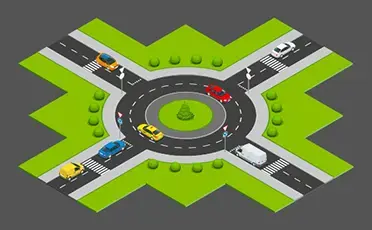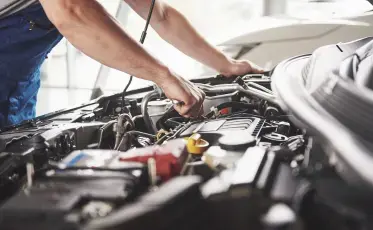In the following text, we have listed several recommendations regarding the right time to replace the battery.
Difficulty starting the engine
Provided you didn't forget to turn off the lights the previous night, the problem should be with the battery. However, before suspecting the battery, check if any electronics are on to ensure that a faulty switch or connection isn't causing the issue.
The problem with the battery could be that it either doesn't hold a charge or isn't getting enough current to charge. If it doesn't hold a charge, it's time for a new battery. If it isn't getting enough current, consult your mechanic to check the alternator.
Check the terminals and see if they are corroded (if they are, clean them by pouring a little water on them), as corrosion negatively affects the flow of electrons to the cables. Then, charge the battery and check if it holds a charge. If it doesn't, it means it's time to replace the battery.

Clicking sound when starting the engine
If you turn the key to start the engine but only hear a click, this usually indicates insufficient battery power needed to activate the solenoid and starter motor to start the engine. The causes can be multiple, such as incomplete charging by the alternator, excessive demand from the starter motor, or a faulty starter solenoid or relay. To be sure of the issue and whether any of these components need replacement, have it tested at a professional auto service.
Cranking without starting the engine
If you have been driving long enough, there is a good chance you have experienced the infamous engine cranking without starting. In most cases, the problem is with the battery.
Here, the method of using jumper cables and the help of another driver with a working battery, who is willing to share their voltage with you, can help. After starting the car, remove the cables and don't forget to drive for at least half an hour to allow the alternator to charge the battery. Then, turn off the engine for a minute and start it again.
Inability to start the engine and lights
If nothing happens when you try to start the engine and the lights don't work either, the problem is the battery, as it powers all the electronics and lights, especially when the alternator is not activated.
If nothing happens when you try to start the engine but the lights work, then it could be another issue, such as with the starter motor or the engine mechanics.
Intermittent successful engine starting
If the engine's performance varies from day to day, there is a possibility that the terminals are loose, corroded, or simply damaged, or that there is a power drain even when the source is off, or perhaps an inadequate connection. You can remove the terminals yourself and check their condition, but for everything else, it is recommended to visit a professional auto service.
Difficulty starting the engine in cold weather
Pay special attention to this, as frequent difficulty starting the engine in cold weather is one of the first signs that the car battery is nearing the end of its life. We emphasize the word "frequent," as at extremely low temperatures, due to the harder dispersion of fuel and increased oil density, the battery has less power than in normal weather conditions, so occasional difficulty starting the engine is normal. However, if this happens three times a week or more often, it's time to be alarmed.
Of course, this is not the only indicator that the battery's lifespan is coming to an end. Here are some other signs:
- Frequent need to use jumper cables;
- Rapid discharge (15-30 minutes) of the battery with the engine off and the radio or other electronics on;
- Need to turn the key multiple times to start the engine;
- Flickering lights and electronics with each turn of the key when starting the engine;
- Difficulty starting the engine after it has been off;
- Flickering lights and electronics when accelerating while driving;
- Occasional shutdown of the radio and electronics while driving.
Battery life
The average battery life is two to three years, while some manufacturers claim their batteries last five years or more. In most cases, the battery will last until the warranty expires.

It is recommended to replace the battery every two to three years before problems arise, as it may already be too late by then. The last thing you want is for the battery to fail during moments like a family trip or an important business or private meeting. Keep in mind that proper battery maintenance ensures its maximum performance.



